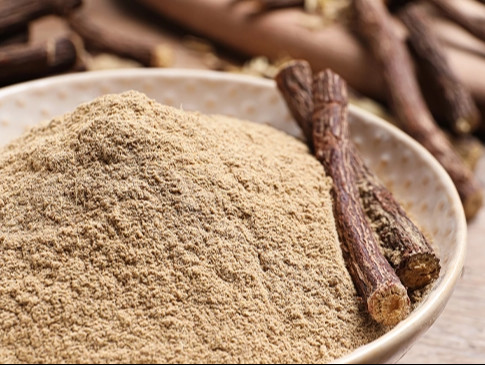
Compounds derived from plants present interesting possibilities as natural agents for combating bacteria in food. One example is glabridin, a compound found in licorice, which is being studied for applications in the food industry. Plants produce these substances as a defense mechanism against pathogens, and their properties can also be valuable for food preservation.
Researcher Alberto Bombelli earned a cum laude doctorate for his study on prenylated isoflavonoids, a group of compounds with strong antimicrobial properties. He found that the presence of a prenyl group in the molecule enhances the effectiveness of these substances. Glabridin, a byproduct from licorice production, showed significant potential.
Tests demonstrated that glabridin is effective as a preservative against bacteria such as Listeria monocytogenes. This bacterium, a known cause of foodborne infections, presents a persistent challenge in the food industry. The compound also proved suitable as a surface disinfectant.
The research revealed that glabridin kills bacteria by disrupting their cell membranes. Its specific mechanism depends on how and where the prenyl group is attached to the molecule. Model studies and experiments helped identify the most effective structures.
The insights gained open doors to developing new, potentially more powerful antimicrobial agents. While glabridin targets cell membranes, some similar compounds operate through other mechanisms, underscoring the versatility of natural compounds in the fight against bacteria.
Using plant-derived substances like glabridin offers a sustainable alternative to synthetic agents, with the potential to make food safer and extend its shelf life.
Source: Wageningen University & Research